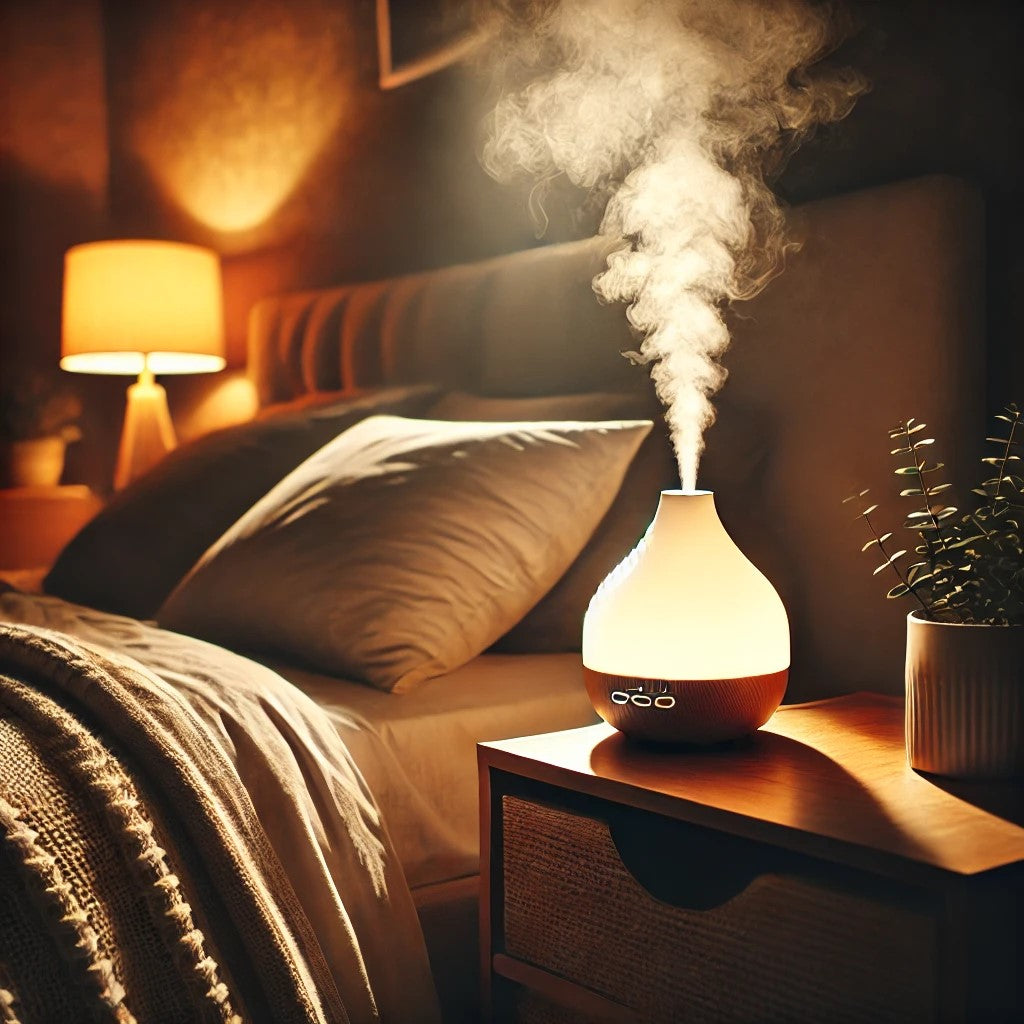
Stress and Sleep: Effective Techniques to Relax Before Bed
Are you too stressed to sleep? Discover powerful relaxation techniques to wind down before bedtime and achieve the restful sleep you deserve.
The Stress-Sleep Connection: Why It Matters
Stress is a common culprit behind sleepless nights. Let's explore how it affects your sleep and why relaxation is crucial for a good night's rest.
How Stress Disrupts Your Sleep
When stress takes hold, your body goes into high alert:
- Stress hormones like cortisol and adrenaline flood your system
- Your heart rate increases
- Your mind races with thoughts and worries
Result? You're wide awake when you should be drifting off to dreamland.
The Power of Pre-Sleep Relaxation
Engaging in relaxation techniques before bed can:
- Lower stress hormone levels
- Calm your racing thoughts
- Prepare your body and mind for deep, restorative sleep
5 Powerful Relaxation Techniques to Improve Your Sleep
1. Deep Breathing: Your Ticket to Tranquility
Deep breathing is a cornerstone of stress relief for better sleep. It's simple, requires no equipment, and can be done anywhere. The 4-7-8 technique, developed by Dr. Andrew Weil, is particularly effective:
- Inhale through your nose for 4 seconds
- Hold your breath for 7 seconds
- Exhale slowly through your mouth for 8 seconds
- Repeat 4 times
Why it works:
- Slows down your heart rate
- Reduces the release of stress hormones
- Increases oxygen flow throughout your body
- Activates the parasympathetic nervous system (rest and digest)
Tips for success:
- Find a comfortable position, either sitting or lying down
- Place one hand on your chest and the other on your belly to ensure you're breathing deeply
- Practice during the day to make it easier at bedtime
- If holding your breath for 7 seconds is difficult, start with shorter durations and work your way up
2. Aromatherapy: Scents for Sweet Dreams
Harness the power of calming scents to enhance relaxation with an essential oil diffuser:
- Use lavender or chamomile essential oils
- Try a diffuser or scented candles in your bedroom
Why it works:
- Certain scents can activate the limbic system, influencing emotions and sleep
- Aromatherapy can lower heart rate and blood pressure
Effective sleep-promoting scents:
- Lavender
- Chamomile
- Vanilla
- Jasmine
- Sandalwood
- Ylang-ylang
Tips for success:
- Use high-quality, pure essential oils
- Start with a small amount and increase as needed
- Experiment to find the scents that work best for you
- Consider a pillow spray for a subtle, long-lasting effect
3. Progressive Muscle Relaxation: Melt Away Tension
Progressive Muscle Relaxation (PMR) is a powerful method to release physical tension and promote mental calmness:
- Start at your toes and work up to your head
- Tense each muscle group for 5 seconds
- Relax for 30 seconds before moving to the next group
Full body sequence:
- Feet and toes
- Calves
- Thighs
- Hips and buttocks
- Stomach
- Chest
- Back
- Arms and hands
- Neck and shoulders
- Face
Why it works:
- Helps you recognize the difference between tension and relaxation
- Reduces muscle tension and associated stress
- Provides a mental focus, distracting from anxious thoughts
Tips for success:
- Find a quiet, comfortable space
- Wear loose, comfortable clothing
- Don't tense too hard – it should be noticeable but not painful
- Pair the relaxation phase with slow, deep breaths
4. Mindfulness Practices for Sleep: Calm Your Racing Mind
Mindfulness meditation is a powerful tool to reduce bedtime anxiety and promote peaceful slumber:
- Focus on your breath or a calming image
- Acknowledge thoughts without judgment
- Gently return your focus to your breath when your mind wanders
Why it works:
- Reduces activity in the default mode network (DMN) of the brain, associated with mind-wandering and worry
- Lowers cortisol levels
- Improves melatonin production
Guided meditation options:
- Body scan meditation
- Loving-kindness meditation
- Visualization techniques
Tips for success:
- Start with short sessions (5-10 minutes) and gradually increase
- Try apps like Headspace, Calm, or Insight Timer for guided sessions
- Be patient and kind to yourself – mastering mindfulness takes practice
5. Create a Relaxing Bedtime Routine
Establishing a consistent pre-sleep ritual signals your body it's time to wind down:
- Read a book
- Take a warm bath
- Listen to soothing music
Why it works:
- Conditions your mind and body for sleep
- Reduces exposure to sleep-disrupting activities
- Lowers cortisol levels and increases melatonin production
Additional routine ideas:
- Light stretching or gentle yoga
- Journaling or gratitude practice
- Drinking herbal tea (chamomile, valerian root, or passionflower)
Tips for success:
- Start your routine 30-60 minutes before bedtime
- Keep the routine consistent, even on weekends
- Avoid screens during this time to limit blue light exposure
- Create a sleep-friendly environment (cool, dark, and quiet)
Remember, everyone is different. Experiment with these techniques to find what works best for you, and don't hesitate to combine methods for a personalized relaxation routine. Sweet dreams!
Wellness Wave is an affiliate marketer, and may earn from paid links.


